Previamente al anuncio de la Secretaría de Educación Pública (SEP) para aumentar el presupuesto destinado a la “capacitación” de los docentes, se abandonaron y desmantelaron en todo el país las instituciones públicas responsables de llevar a cabo esta tarea. Las que se crearon recientemente, a consecuencia de la reforma educativa de 2013, tal es el caso de la Coordinación Nacional del Servicio Profesional Docente (CNSPD), nunca se consolidaron, se perdieron en su propias incapacidades, sin propuestas siquiera visibles, mucho menos de algún impacto real.
Los Centros de Maestros que surgieron en 1994 para atender la actualización del magisterio, primordialmente la que demandaba el extinto programa de Carrera Magisterial, habían mal funcionado en los últimos años con graves carencias de personal y de infraestructura mínima; pero ahora son un cascarón sin proyecto, sin recursos económicos que en lugares de excepción, todavía se sostienen por la inercia de algunos comisionados que permanecen en la incertidumbre.
En la misma lógica se echó a andar desde 2015 el pilotaje del más reciente plan estatal para el desmantelamiento de las escuelas normales y las universidades pedagógicas (UPN). En él, se propone desaparecer todas las licenciaturas y crear únicamente dos: docencia e inclusión, que no representan ningún perfil específico o especialidad para que los egresados se desempeñen en alguno de los niveles de educación básica: primaria, preescolar, educación especial, secundaria o telesecundaria.
La consecuencia de esta medida es la aberración que ya fue dada a conocer por Aurelio Nuño: abrir la carrera docente a todas las universidades y a cualquier profesión, incluso, sin importar que no tengan relación alguna con el ámbito educativo; el único requisito para adentrarse al servicio será participar en el examen nacional de ingreso y salir seleccionado acorde con los parámetros de “idoneidad” que estableció la reforma educativa.
De este modo, la tendencia a la desaparición de las escuelas normales, así como de la Universidad Pedagógica Nacional, allana su camino. Ahora, la formación inicial de los docentes no tendrá la menor importancia; cuando los no docentes se incorporen al sistema educativo nacional, habrá que prepararlos de forma emergente para lo que no fueron formados en las universidades, es decir y aunque parezca extraño, hay que enmendar el error que ya se sabe que se va a cometer, con medidas anticipadas por la SEP a través de programas de entrenamiento, o bien, para utilizar su propio lenguaje, de “capacitación” para que sí puedan desempeñarse en la docencia. De suerte que el aumento al presupuesto para la capacitación docente que pasó de 200 a mil 809 millones de pesos y que representa un incremento de 800 por ciento, no sólo hará estragos en la pertinencia de las escuelas normales y las UPN, tampoco servirá para fortalecer los Centros de Maestros que son públicos y que ya cuentan con una cierta estructura organizativa para la formación continua dentro del sistema educativo nacional; de hecho, rescatar estos espacios es la recomendación que hace el propio INEE en “Modelos de formación continua de maestros en servicio de educación primaria: criterios e indicadores para su evaluación”, documento emitido en 2016. Aurelio Nuño prefirió ser congruente a sus intereses de clase e hizo efectivo el llamado a que los empresarios emitieran propuestas en materia educativa, así que decidió atender de manera prioritaria las orientaciones hechas por Mexicanos Primero en “Prof. Recomendaciones sobre formación inicial y continua de los maestros en México” (sic), documento publicado en febrero del presente año, un mes antes de que se presentara la propuesta oficial de la SEP.
En “Prof.” el grupo de empresarios autoproclamados como altruistas y sus mercenarios de pluma fuente, dicen textualmente lo que después replicarán los altos funcionarios de la SEP: “Proponemos que se favorezca a la brevedad un Consorcio de universidades para que trabajen de inmediato en una propuesta de plataforma común en estrecha colaboración con el INEE y la DGPDF”.
Y más adelante fortalecen la idea para asegurar que sus intereses no sean desviados a cualquier improvisado en la economía del conocimiento: “Así, el Estado mexicano puede atraer lo mejor del talento universitario en apoyo de los maestros de educación básica, cubrir la dispersión en el país con tutores serios y enfocados, transparentar el manejo de recursos para este fin, y acotar los riesgos de contratar oportunistas, depredadores y sin compromiso”.
Entonces, el “monopolio” estatal de las normales como semillero de maestros, por demás lógico para dar cobertura a la escuela pública, no sólo será sustituido por otro, el cual está encabezado por los grandes corporativos, dueños de cadenas y alianzas entre universidades de capital privado, sino que además el “incremento histórico” de los recursos destinados para capacitación docente, les será entregado en forma directa, en una primera etapa por invitación de la SEP, o mejor dicho, por favoritismo, compadrazgo y hasta pago de facturas políticas.
Claro está, para salvaguardar alguna sobriedad que haga parecer a esta medida como una política de beneficio social, se mencionan a las universidades públicas; pero, en el caso de las normales, la SEP no tuvo ningún rubor en ponerles candados y hacerlas a un lado: “de manera complementaria, participarán algunas de las mejores escuelas normales”, por lo que ya podemos sospechar, a saber del estigma que se les ha impuesto, que serán excluidas.
En cualquier lenguaje o sentido común, esta medida puede ser claramente vista como privatización, se trata de recursos públicos que serán utilizados para capitalizar empresas privadas que hacen de la educación un negocio; finalmente, la preocupación central no es la profesionalización de los maestros ni los aprendizajes de los alumnos, sino la mercantilización de la formación docente.
En “Prof.” como buenos empresarios que son, Mexicanos Primero hace sus estimaciones del negocio que pueden realizar ofertando cursos de poca inversión que ya están en el portal de la SEP: “debe considerarse como una modalidad con alto impacto potencial los programas de desarrollo profesional en línea; se hace vital, por su flexibilidad y bajo costo, generar una regulación adecuada para juzgar su calidad y observar su desarrollo”.
El “altruismo” del empresariado nacional estima que por cada docente regularizado se pueden destinar unos 10 mil pesos, para cursos modulares y tutorías. De la “Estrategia Nacional de Formación Continua de Profesores de Educación Básica y Media Superior” que se presentó de manera oficial hace unas semanas, podemos concluir que efectivamente es un traje hecho a la medida, pero de los grandes empresarios.
La calidad educativa, los aprendizajes de los alumnos, la profesionalización docente y la escuela al centro, tan sólo son panfletos que se muestran ante la sociedad civil, pero que ocultan quiénes toman realmente las decisiones en este país para favorecer un reducido círculo de oligarcas en detrimento de los intereses de la nación.
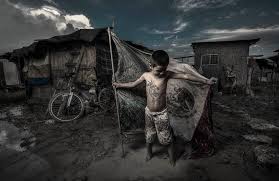




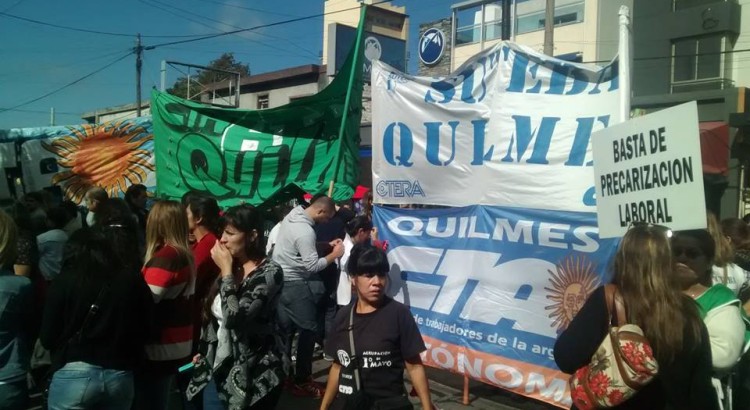
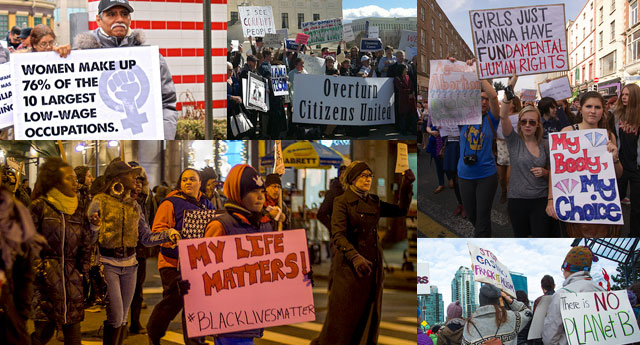
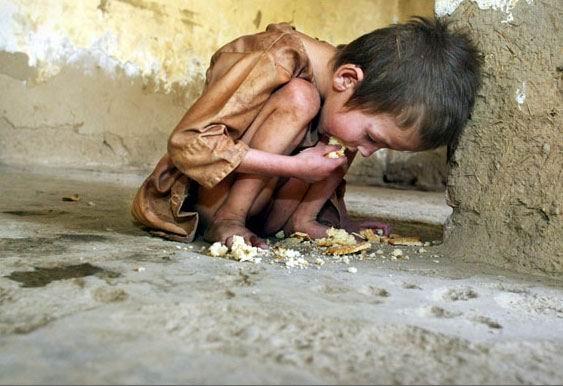

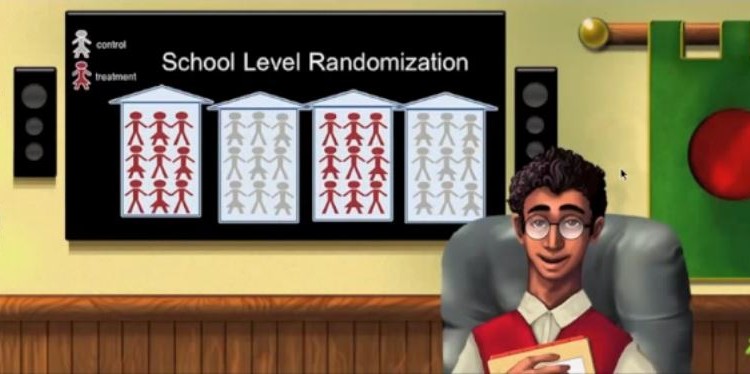






 Users Today : 4
Users Today : 4 Total Users : 35460999
Total Users : 35460999 Views Today : 10
Views Today : 10 Total views : 3420494
Total views : 3420494